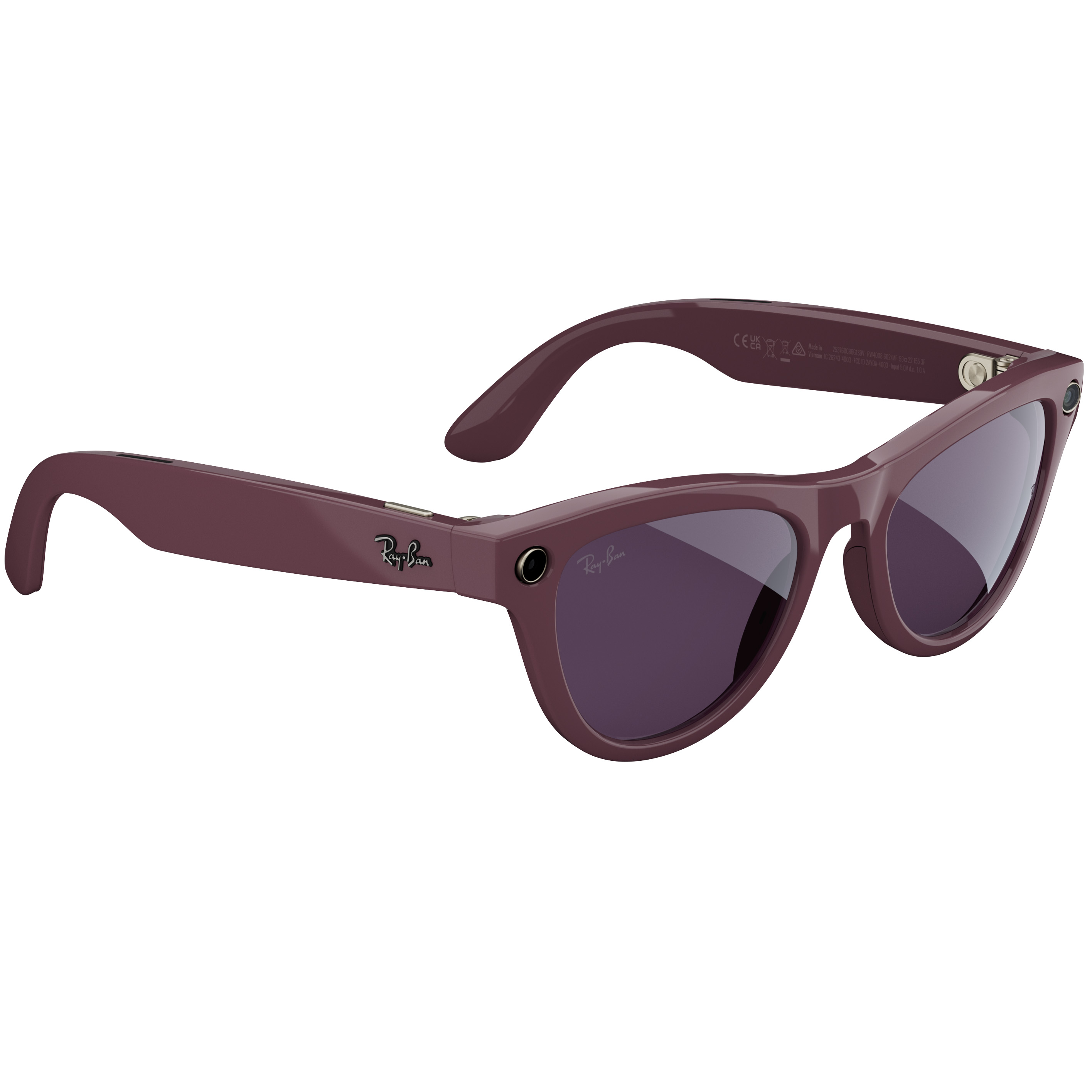Chinese Tech Firms Challenge Meta with AI Glasses
Chinese tech firms like Alibaba are challenging Meta's dominance in AI smart glasses, with Goldman Sachs eyeing investment opportunities in this trend.

Chinese Tech Giants Challenge Meta’s AI Glasses
A new front in the artificial intelligence (AI) hardware war has opened as Alibaba and other Chinese tech firms launch advanced smart glasses, directly challenging Meta’s dominance in AI-powered eyewear. These products, integrating AI assistants, cameras, and augmented reality (AR) displays, are rapidly evolving beyond Meta’s Ray-Ban Meta Gen 2 and Meta Ray-Ban Display, which currently lead the global market. The competition is drawing significant attention from both consumers and investors, with Goldman Sachs reportedly positioning itself to capitalize on this emerging trend.
Background: The Global Smart Glasses Race
Meta (formerly Facebook) has long been the pacesetter in consumer smart glasses, with its Ray-Ban Meta Gen 2 offering a blend of style, camera capabilities, and AI features, and the pricier Meta Ray-Ban Display Glasses introducing AR displays and advanced AI smarts. These devices are positioned as lifestyle products that could eventually replace smartphones for certain tasks, thanks to their hands-free operation and real-time information overlay.
However, Chinese companies are now accelerating their own smart glasses initiatives. Alibaba, in particular, has entered the fray with a new smart glasses product that directly targets Meta’s offerings. Alibaba’s move is part of a broader push into consumer AI, including the launch of its Quark AI chatbot service, powered by the Qwen large language model. This signals a strategic shift for Alibaba, which has traditionally focused on e-commerce and cloud services but is now aggressively diversifying into AI hardware and services.
Key Features: How Chinese Rivals Stack Up
Alibaba’s Smart Glasses
- AI Integration: Alibaba’s glasses are expected to feature deep integration with its Quark AI assistant, enabling real-time translation, voice commands, and contextual information overlay—functionality similar to Meta’s offerings but tailored for Chinese and global markets.
- Camera and Display: While detailed specifications are still emerging, industry observers expect Alibaba’s device to include high-resolution cameras and, potentially, AR displays, mirroring the capabilities of Meta’s premium models.
- Ecosystem Synergy: The glasses are likely to connect seamlessly with Alibaba’s broader ecosystem, including its e-commerce platforms, payment services, and cloud infrastructure, offering a level of integration that Meta cannot easily replicate in China.
Other Chinese Contenders
Beyond Alibaba, other Chinese tech firms are reportedly developing their own AI glasses, though details remain scarce. Companies like Huawei, Xiaomi, and Baidu have previously dabbled in wearable tech and AR, and may soon announce competing products. The Chinese market’s rapid adoption of new technologies and strong manufacturing base give these companies a potential edge in scaling production and reducing costs.
Meta’s Response
Meta continues to refine its smart glasses lineup, with the Ray-Ban Meta Gen 2 praised for its improved battery life, camera quality, and video stabilization. The Meta Ray-Ban Display Glasses, while more expensive and currently limited to the US, represent a significant step toward consumer-ready AR, with a private display embedded in the lens and advanced gesture controls via the Meta Neural Band. However, Meta faces challenges in China, where local competitors benefit from regulatory familiarity and existing user bases.
Industry Impact and Market Dynamics
Goldman Sachs and Investor Interest
The emergence of Chinese rivals has not gone unnoticed by global investors. Goldman Sachs is reportedly exploring ways to benefit from this trend, likely through targeted investments in Chinese AI hardware startups or by advising clients on the shifting competitive landscape. The bank’s interest underscores the potential for smart glasses to become a major new consumer electronics category, with implications for advertising, data collection, and mobile computing.
Competitive Advantages
- Localization: Chinese firms can tailor their AI assistants and services to local languages, cultural norms, and regulatory requirements, giving them an edge in domestic and neighboring markets.
- Cost and Scale: China’s manufacturing prowess allows for rapid iteration and cost-effective production, potentially undercutting Western rivals on price.
- Ecosystem Lock-in: Integration with popular local apps and services (e.g., Alipay, WeChat) could drive adoption among Chinese consumers, much as Apple’s ecosystem does in the West.
Challenges
- Global Brand Recognition: Meta’s Ray-Ban partnership gives it strong global brand appeal, which Chinese firms must overcome to succeed outside Asia.
- Privacy and Regulation: Smart glasses raise significant privacy concerns, and Chinese products may face skepticism in Western markets over data security and government access.
- Technological Maturity: While Chinese firms are advancing quickly, Meta’s lead in AR and AI integration remains substantial, particularly in markets where its services are fully available.
Context and Implications
The battle for dominance in AI-powered smart glasses reflects broader tensions in the global tech industry. As Meta and Chinese tech giants vie for control of the next computing platform, the outcome will shape not only consumer habits but also the flow of data, advertising revenue, and technological innovation.
For consumers, the competition promises more choice, better features, and potentially lower prices. For investors, it represents both opportunity and risk, as the market for smart glasses is still nascent and subject to rapid change. For policymakers, it raises questions about data sovereignty, privacy, and the balance of power in the global tech ecosystem.



